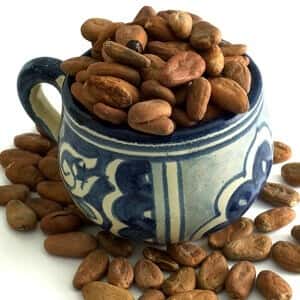
An ingredient in red wine, grapes, peanuts, pistachios, blueberries, cocoa and dark chocolate may be good for the brain.
Researchers randomly assigned more than 100 men to take a purified extract of resveratrol or a look-alike placebo. The subjects in the study were cognitively impaired, having been diagnosed with mild to moderate Alzheimer’s disease.
The Results from Resveratrol:
At the end of a year, the men getting resveratrol (500 mg/day at the outset of the study, increasing to 1,000 mg twice a day by the end) performed slightly better on activities of daily living. They also had higher levels of beta amyloid in their spinal fluid, suggesting that resveratrol might be helping to clear this brain-clogging protein out of the central nervous system where it is associated with Alzheimer’s disease.
How Much Resveratrol?
The dose of resveratrol that was used in the study was far greater than the amount one could get from wine or chocolate. In other words, don’t try this at home. The most encouraging part of the study, though, was that even at this high dose the men were able to tolerate it without bad side effects.
Nevertheless, the results were promising enough that scientists are planning a more rigorous study to see whether high-dose resveratrol might slow cognitive decline associated with aging. We’ll be interested to see the results from that resveratrol study.

